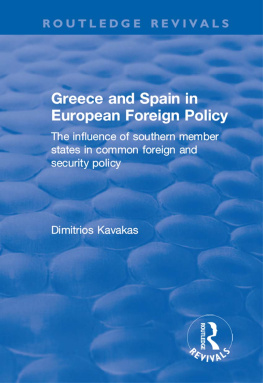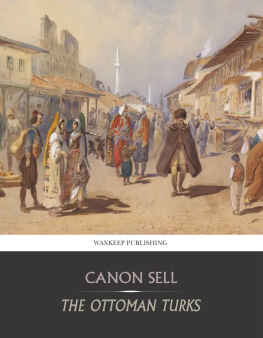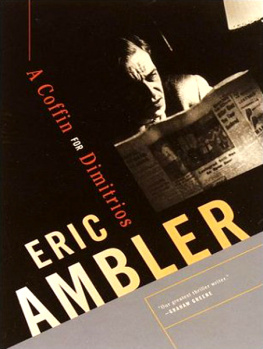When Greeks Think About Turks
Drawing upon anthropological studies that document culturally specific ways of perceiving ethnic Others in Greece and Cyprus, this book explores the cultural boundaries of the categories Greek and Turk, and compares views on what it means to be a member of one or both these ethnic groups. The contributors examine the opinions of diverse social groups, such as ordinary middle-class citizens, intellectuals, army officers, children, villagers, refugees from Asia Minor, and Greek-and-Turkish-Cypriots. They also investigate the local attitudes to international politics and highlight the contextual as opposed to immutable and essentialist meaning of evaluations about nations, such as Greece, Turkey and Cyprus, and their citizens.
When Greeks think about Turks carefully unpacks the cultural meaning of popular metaphors, stereotypes and versions of history as these are articulated in the context of discussions about the Turks in Greece. It sets the template for understanding how local perceptions of resemblance and difference provide a conceptual framework for defining and negotiating ethnic identity at the local, national and international level. It sheds valuable light on the politics of identity-making and the constitution of nationalism in Greece and Cyprus.
This book was previously published as a special issue of South European Society and Politics.
Dimitrios Theodossopoulos is Senior Lecturer in Social Anthropology at the University of Bristol.
When Greeks Think About Turks
The view from Anthropology
Edited by
Dimitrios Theodossopoulos
First published 2007 by Routledge
2 Park Square, Milton Park, Abingdon, Oxon, OX14 4RN
Simultaneously published in the USA and Canada
by Routledge
711 Third Ave, New York NY 10017
Routledge is an imprint of the Taylor & Francis Group, an informa business
Transferred to Digital Printing 2009
2007 Taylor & Francis Ltd
Typeset in Minion 10.5/13pt by the Alden Group Oxford
All rights reserved. No part of this book may be reprinted or reproduced or utilised in any form or by any electronic, mechanical, or other means, now known or hereafter invented, including photocopying and recording, or in any information storage or retrieval system, without permission in writing from the publishers.
British Library Cataloguing in Publication Data
A catalogue record for this book is available from the British Library
Library of Congress Cataloging in Publication Data
A catalog record for this book has been requested
ISBN 10: 0-415-40070-8 (hbk)
ISBN 10: 0-415-56426-3 (pbk)
ISBN 13: 978-0-415-40070-1 (hbk)
ISBN 13: 978-0-415-56426-7 (pbk)
CONTENTS
DIMITRIOS THEODOSSOPOULOS
VASSOS ARGYROU
IRAKLIS MILLAS
RENE HIRSCHON
LAY ROMAIN RS
SPYROS SPYROU
PAUL SANT CASSIA
FOTINI TSIBIRIDOU
VASSILIKI YIAKOUMAKI
ELISABETH KIRTSOGLOU
PETER LOIZOS
DIMITRIOS THEODOSSOPOULOS
Dimitrios Theodossopoulos
This volume is concerned with the views held by some Greeks about the Turks, mostly the generalized, treated as undifferentiated, Turks. It addresses the preoccupation of some people (who imagine themselves as similar to each other) with some other people (imagined as homogeneously dissimilar and incompatible in ethnic terms). This is an example of ethnic categorization set in opposition, and the case of Turks in the minds of Greeks is one of the most enduring variations. Like many other conflict-ridden pairs of ethnic identificationIsraelis and Palestinians, Protestants and Catholics in Northern Ireland, Bosnian Muslims and Bosnian Serbsthe categories themselves, like their supporting nationalisms and ethno-histories, rely upon taken-for-granted, unexamined in everyday conversation, perceptions of cultural incompatibility. The contributors to this volume examine these taken-for-granted perceptions, and several other, less antagonistic ones, which contradict them. They draw attention to the complexity of cultural worldviews about Others as these manifest themselves, both in particular arguments and social dynamics, and when Greeks think about Turks.
The ethnographic accounts in the chapters that follow consider the points of view of diverse social groupsordinary citizens, intellectuals, army officers, children, villagers, refugees from Asia Minor, the Rum, Greek and Turkish Cypriotsand pay careful attention to the process in which these views become apparent and negotiated. The emphasis on particular case studies, emblematic of the anthropological approach, is introduced here as an antidote to sweeping generalizations, and with an intention to facilitate a more complex understanding of ethnic categorization in South Europe and beyond. The Turks for the Greeksor more accurately, the Turks in the minds of those who call themselves Greeksare indispensable ingredients of nation building in Greece and Cyprus. They comprise one of the most representative examples of a national Other used as inspiration for imagining the national Self. In this respect, the generalized category of the Turk, and its facilitating role in the narratives and arguments of the Greeks, can shed some valuable light on the processes that inform ethnic identity making in several other European and non-European contexts.
Greeks and Turks as Hollow Categories
Western Europeans and North Americans who have travelled, lived and acquired a sense of familiarity with Greece and Cyprus have not failed to observe that the Greeks and the Greek Cypriots think and talk a lot about the Turks. Some of them would not hesitate to argue that the Greeks are obsessed with the Turks, that most conversations with Greeks, at least those about politics, focus on the Greeks themselves, the Turks and their unending enmity. In a similar manner, academic commentators very frequently refer to the undifferentiated Turk as the most significantor salient (Mandel 1996)Other of the Greeks.1 In fact, it is a matter of simple observation that an overwhelming majority of the inhabitants of Greece and Cyprus engage frequently with the category of the Turk and with the meanings and emotions with which this category is endowed. They do so in debates about politics, when they indulge in speculation about order and justice in the world, or in arguments about identity and lifestyles, when they simply contemplate themselves and their way of life. The Turks, in whatever capacity they are discussed, inspire the moral and national imagination of many people in mainland Greece and the island of Cyprus. And in this respect the Greeks appear to be preoccupied with the all-inclusive, generalized category of the Turk.
I am tempted to argue that this intriguing proposition is liable to several layers of generalizing simplicity. The people who call themselves Greeks are derived from various cultural, social (and, occasionally, ethnic or religious) backgrounds. They could be citizens of Greece, Greek Cypriots from the Republic of Cyprus,2 members of the Christian minority in Turkey or Greeks from the diaspora. Their use of the notion of the Turk evokes numerous, and similarly diverse, associations and serves manifold purposes. It depends on particular circumstances, contexts and strategies, different historical instances or personal histories. Moreover, the Turk as a category in local conversation in Greece and Cyprus cannot be straightforwardly defined. It is employed to refer to a number of ideas or people or ethnic landscapes, which are not outlined with precision, and could take many different forms in the imaginations of those who reflect upon them.







